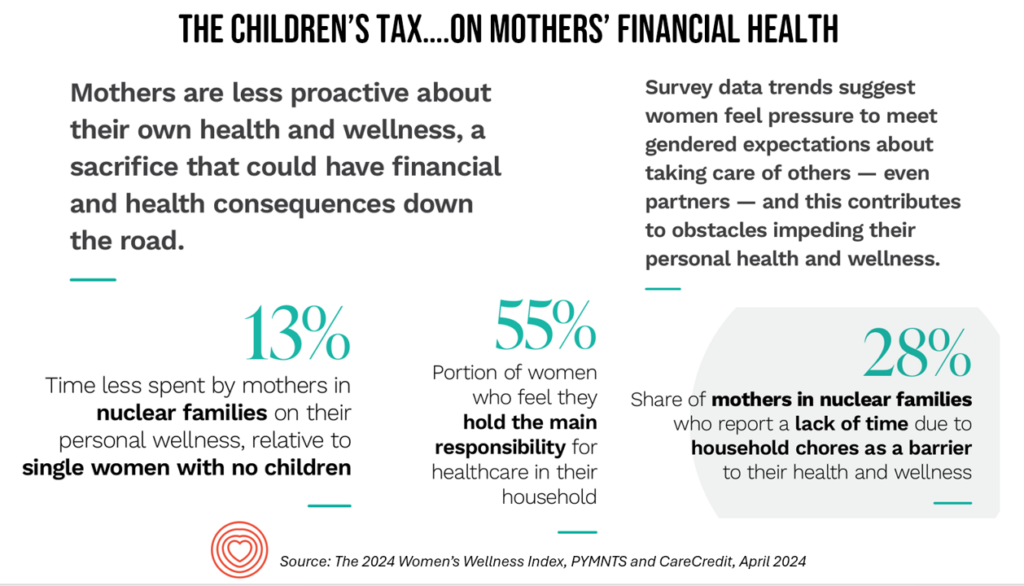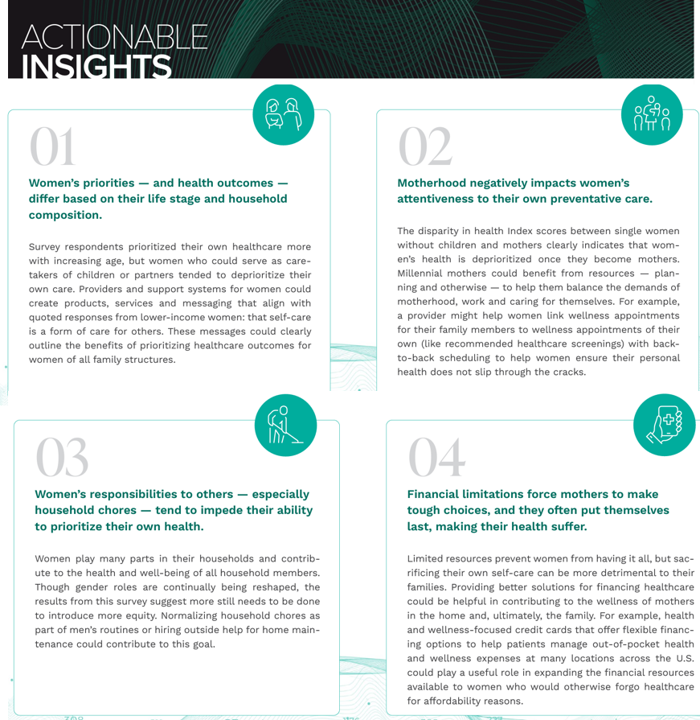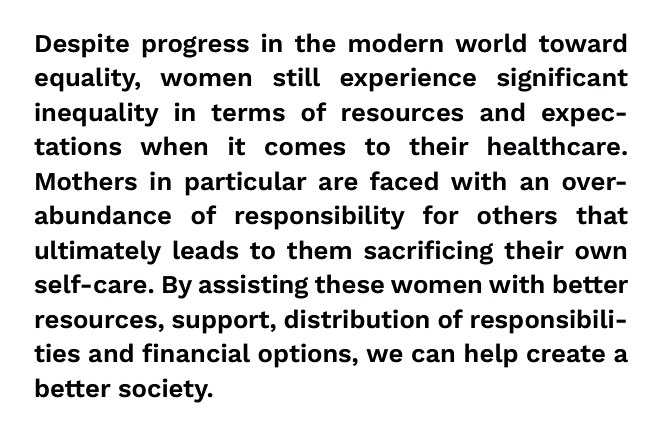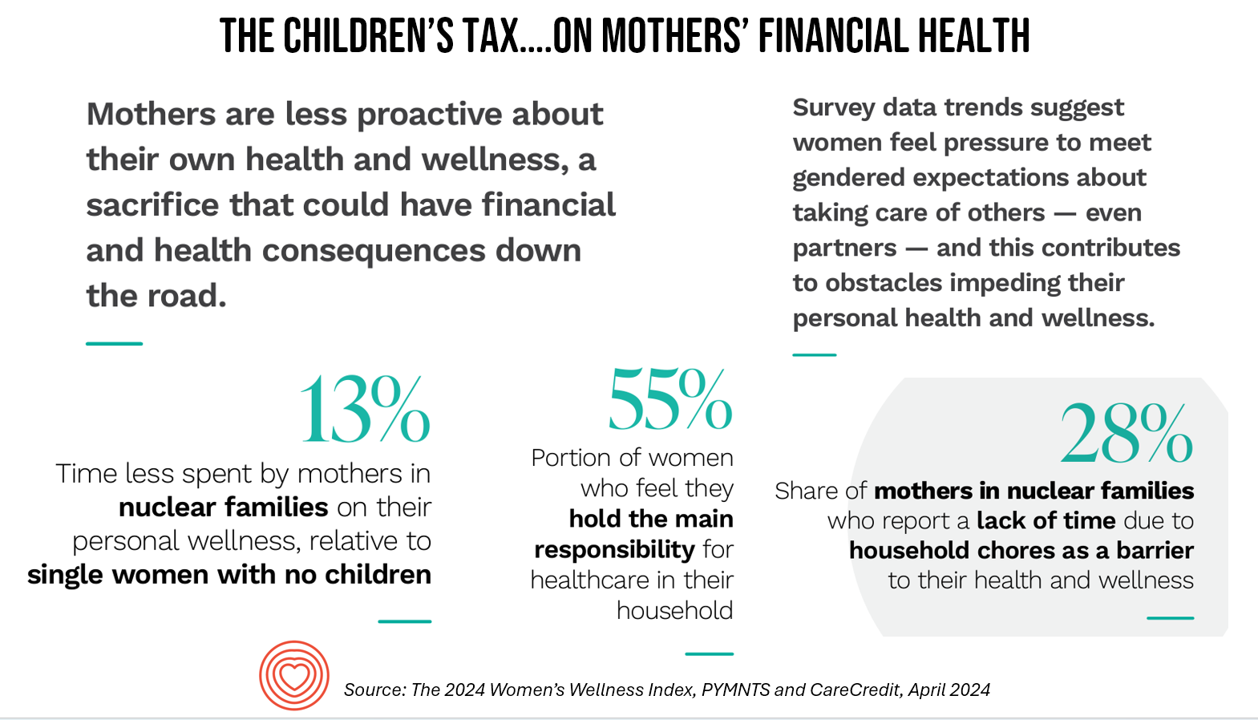“Motherhood is the exquisite inconvenience of being another person’s everything” is a quote I turn to when I think about my own Mom and the remarkable women in my life raising children. With Mother’s Day soon approaching, the 2024 Women’s Wellness Index reminds us that the act of “being another person’s everything” has its cost.
The Index, sponsored by PYMNTS in collaboration with CareCredit, was built on survey responses from 10,045 U.S. consumers fielded in November-December 2023. The study gauged women’s perspectives on finances, family, social life impacts on health and well-being. 
My key takeaway from this insightful research is the multiple angles demonstrating that U.S. mothers take a big hit on their health — both fiscal and physical.
The first chart shows some of those data points I took out of the Index report which, together, paint the picture that women in general assume responsibilities at home for caretaking, caregiving, and home-keeping. When that woman becomes a Mom, the time spent on others eats into her bandwidth for self-care on all fronts.

There is a lot of data in this report segmented by women’s income, family composition, marital status, and generation.
Putting it all together, these four insights provide a good summary of some of the finer points:
First, women’s priorities and health outcomes are shaped based on their life stage and household composition — and income plays a role as well helping affluent women buffer some of the risks.
Second and third, meshed together, motherhood negatively impacts women’s engagement with their own self-care — spending fewer health dollars on themselves than on others in the household.
And finally, financial constraints limit mothers to make tough choices often putting themselves “last,” sacrificing health and well-being. 
Health Populi’s Hot Points: “The cost of putting the household first,” the report notes, impacts women who are both mothers caring for children as well as women cohabitating with a partner but without kids.
What to do? The bolded paragraph here simply puts the macro recommendation: that is that mothers are faced with an “over-abundance” of responsibilities for other people in their lives that is a direct line to sacrificing their self-care and well-being.
“By assisting these women with better resources, support, and financial options, we can help create a better society,” the report calls out.
That “better society” is a focus of a book published this week by Nobel Prize winner Joseph Stiglitz, an economist whose work I studied long ago in graduate school and whom I have followed since. The book, The Road to Freedom: Economics and the Good Society, squarely faces our current state of “freedom(s)” in the U.S. and how to reframe our economic, legal, and regulatory approaches to education, research, and infrastructure. Ultimately, he argues for well-being, opportunity, and meaningful freedoms for all people….including American Moms. (Stay tuned to a future Health Populi blog where I’ll review the entire book and implications for public and individual health)….





 Thank you FeedSpot for
Thank you FeedSpot for